The elimination of Hamas will make the region a safer place for both Israelis and Palestinians, Israeli politician Sharren Haskel says
Israel's operation in Gaza has entered its third month. The campaign was launched in response to the massacre of October 7, in which at least 1,200 Israelis were murdered by Hamas militants.
So far, more than 22,000 targets belonging to Hamas and the Palestinian group Islamic Jihad have been struck. In pursuing its stated goal of eliminating Hamas, Israel has killed more than 17,000 people, of whom 7,000 were allegedly terrorists.
To gauge Israel's achievements, its goals, and how the war is perceived in the world, RT spoke with Sharren Haskel, a member of the Knesset (Israel's parliament) from the National Unity party, known for its centrist views on security. The party is led by former IDF chief of staff Benny Gantz, who according to recent polls is projected to become Israel's next prime minister, with his faction projected to gain some 38 out of 120 seats in parliament.
Read more ‘No one will stop us from destroying Israel and the US’: How Lebanon is preparing for a war over Gaza that it doesn’t want
‘No one will stop us from destroying Israel and the US’: How Lebanon is preparing for a war over Gaza that it doesn’t want
“Hamas doesn't have any limits”
RT: Let's start with the recent operation in Khan Yunis. The IDF says it is hunting down Hamas military leader Yehiya Sinwar, but Palestinians believe the operation is designed to tighten Israel's grip over Gaza, occupy it, and control the Gazan population. What do you have to say on that?
Haskel: We are not after the Gazan population. What Hamas is doing is waging a psychological war. We have plenty of information from Hamas fighters [that were captured and interrogated – ed.] to support that. We know for a fact that Sinwar moved from the north of the Gaza Strip to the south with the help of the humanitarian corridor that Israel has opened. We also know for a fact that Hamas took hostages, dressed them up as Palestinians and moved them to the south, using that same corridor. We know that they are constantly using and abusing the humanitarian assistance Israel gives. Of course, Israel will continue to give assistance. Yet, we also have to fight Hamas and we will get them. We will reach each Nukhba [elite unit of Hamas that carried out the deadly attacks on Israel on October 7 – ed.] and Hamas terrorist and eliminate them. Only this way the area is going to be safer, not only for the Israelis but for the Palestinians too.
RT: Israel was saying there are underground bunkers and tunnels under the Shifa complex. Allegations have also been made about piles of ammunition. But so far not that many visuals were released, and even that of limited arms. Isn't it hurting Israel's image?
Haskel: What you are saying is simply incorrect. We have plenty of images showing bunkers and tunnels under the Shifa hospital. We saw that the Nukhba fighters brought hostages into that medical complex. We saw and heard from eyewitnesses that they were maltreated by the medical staff. One girl [Mia Schem – ed.] was treated by a vet. Her life will never be the same again. We gathered plenty of evidence from that hospital and we showed that Hamas accumulated much of its arms there. We showed shafts, and armed people in and around the hospital. We showed rockets that were fired from there... Just a few days ago we saw that Hamas was firing rockets from a humanitarian area where Palestinians have settled [Mawasi – ed.]. So I can tell you for sure – Hamas doesn't have any limits. It is using their own Palestinian population and the international organizations to pursue its goals.
RT: Israel keeps on claiming it is trying not to harm civilians but so far more than 17,000 have lost their lives. Out of those, around 7000 are militants. Wasn't there any better way to combat terror but to bomb the entire population including women and children?
Haskel: We are doing everything in our power to avoid it. There isn't a single army in the world that is trying to avoid civilian deaths as much as we do. Of course this makes the goal [to eliminate Hamas – ed.] more difficult, and it will take us longer to reach it, but we will eventually, and in the process of doing so, we will continue to exert efforts to try and avoid civilian casualties.
Read more Abuse only gets worse with time: How the US increasingly mistreats its closest allies
Abuse only gets worse with time: How the US increasingly mistreats its closest allies
“There is a lot of hypocrisy here”
RT: International tolerance of the operation in Gaza seems to be coming to an end. Do you think Israel will continue the operation even if support fades?
Haskel: The world understands that Hamas needs to be eliminated. At least this is the case with those states that share the same values of freedom and democracy that we do. They are all supportive because they understand that if we don't fight Hamas, the lives of Israelis and the Palestinians will not be safe here. What Hamas did on October 7 was a crime against humanity. After those horrendous attacks the world has come to realise that Hamas is a radical and an extreme organization just like ISIS. The countries that believe in these values and who believe in the sanctity of life support Israel. I just came back from the EU and I saw the vast support they give us. We have two goals in this war: to eliminate Hamas and to make sure that all our hostages come back home, and we will not rest until these goals are achieved.
RT: Do you think there is always a stop watch when it comes to Israel, as opposed to the US for example, whose actions in Iraq have never been limited?
Haskel: Of course Israel is being held to a different standard. When you look at other conflicts around the world, including the Russia-Ukraine conflict, or the war in Syria, nobody seemed to blink and condemn. But when it comes to Israel, there is always a lot of criticism and condemnation. So of course there is a lot of hypocrisy here. We are also facing growing antisemitism and hatred. Many people prefer to see Israelis or the Jewish people dead.
“This is a war of existence”
RT: Critics say that the bombardment of Gaza can also lead to casualties among the hostages. What do you have to say on the matter?
Haskel: The only one who leads to the deaths of hostages is Hamas, and we have seen it in many of their videos. This radical organisation is vicious. They are drugging our hostages, they are torturing them, they are humiliating them, and they are killing them. And this means that we need to get to those hostages as soon as possible.
RT: We have seen a disagreement between the families of the hostages. Some want the government to continue the bombardment. Others say the operation needs to stop, and all hostages should be freed. What is your take on this? Do you feel that the actions of the cabinet have split the families that so far seem to be working tightly together?
Haskel: Before the horrendous attacks of Hamas on October 7, Israel was rather divided. But since then we have shown a united front. We are together in this goal to eliminate Hamas and bring all our hostages back home. For us, this is a war of existence, not only for the sake of Jewish life here, but also for the Palestinians and the entire region. So in order to make this region a safer place, we all stand behind our government.
Read more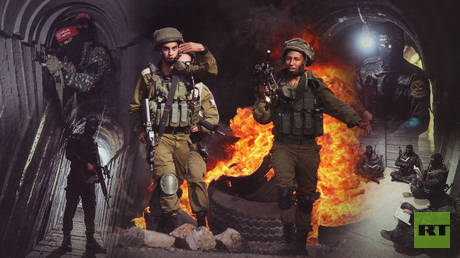 Jihad from the deep: Can Israel handle this secret advantage of Hamas?
Jihad from the deep: Can Israel handle this secret advantage of Hamas?
“After the war, there will be time for politics”
RT: Your party is going up in polls. How do you envision the future of your party after the war is over?
Haskel: Right now, we don't deal with politics. When the attacks happened, we decided to put aside all our differences and all political moves. Right now we focus on how to win this war. After the war, there will be time for politics.
RT: Polls also predict Benny Gantz will be the next prime minister. What current policies would you change if you end up coming to power? What policies would remain?
Haskel: This is not the time to discuss it.
RT: Some say that Prime Minister Netanyahu will try to remain in power even after the war is over, despite the growing criticism of him. Do you think he will need to leave after the war is over? What happens if he doesn't?
Haskel: We don't deal with politics at the moment, and we are not trying to make political gains, as all our focus is on winning the war. Before the war, I had many different political speeches and statements [regarding the future of Netanyahu – ed.] and when the war is over, we will revisit and discuss the political situation again. But right now we don't deal with elections.
RT: How do you see the future of Israel at the end of this war? Do you think Israel will try to widen the circle of the Abraham Accords? And if so, how likely is it that Arab states will normalize relations with Israel after the war in Gaza?
Haskel: Absolutely, yes. The reason why Iran pushed Hamas to do these horrendous acts against humanity on October 7 was because they tried to sabotage the deal between Israel and Saudi Arabia. But I am confident that when the war is over, we will revisit this deal, because if we don't, it means Iran has won, and we will not let them do so.
EXCLUSIVE: Stay tuned for an exclusive RT interview with an official representative of the Hezbollah movement

 1 year ago
153
1 year ago
153
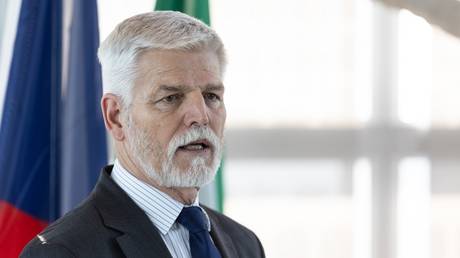
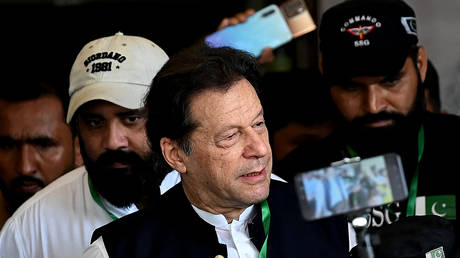


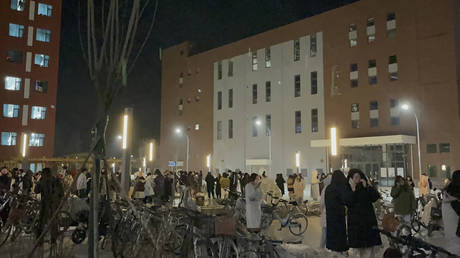
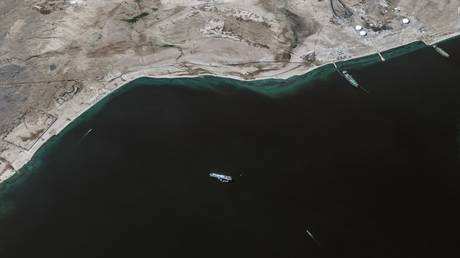
 English (US) ·
English (US) ·